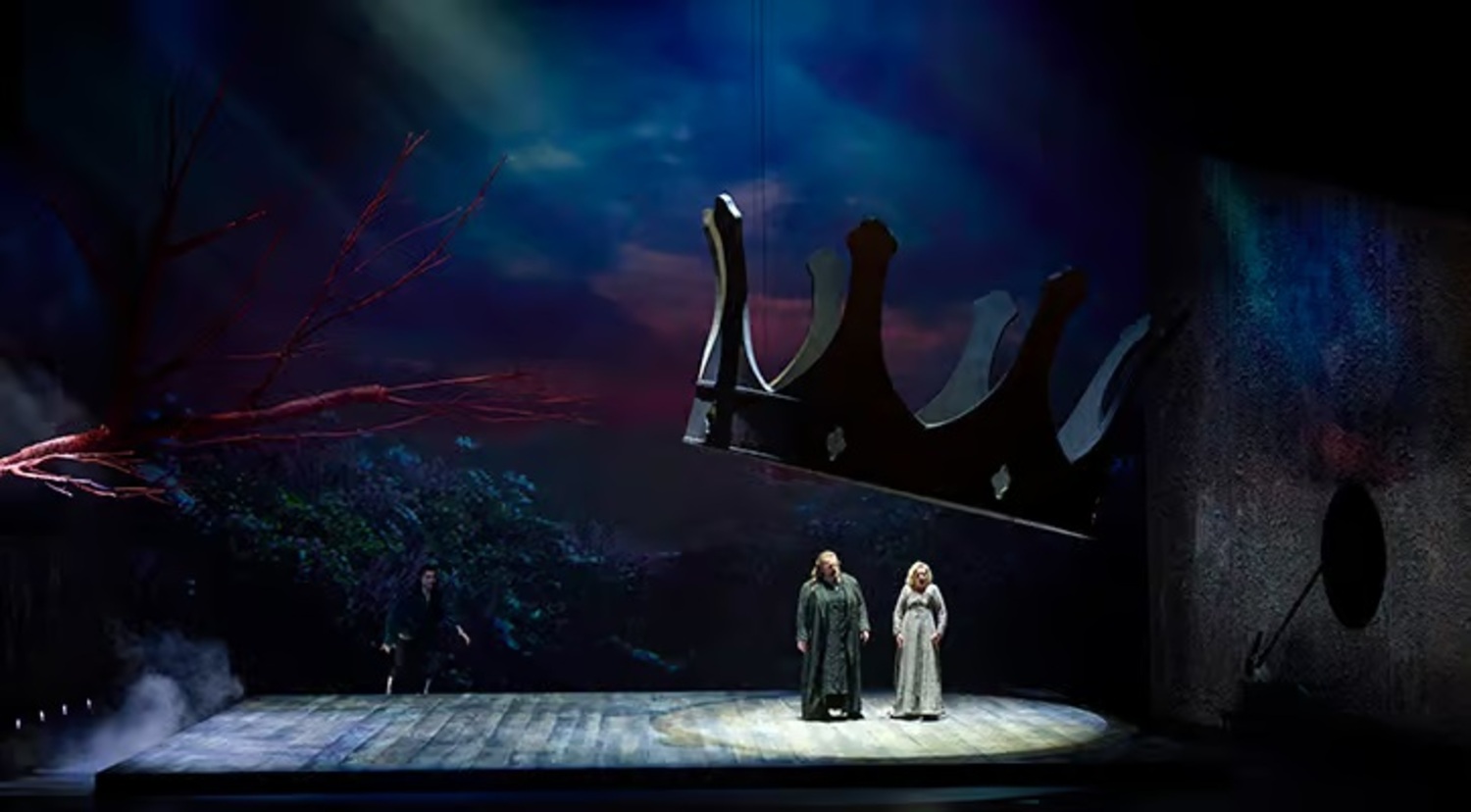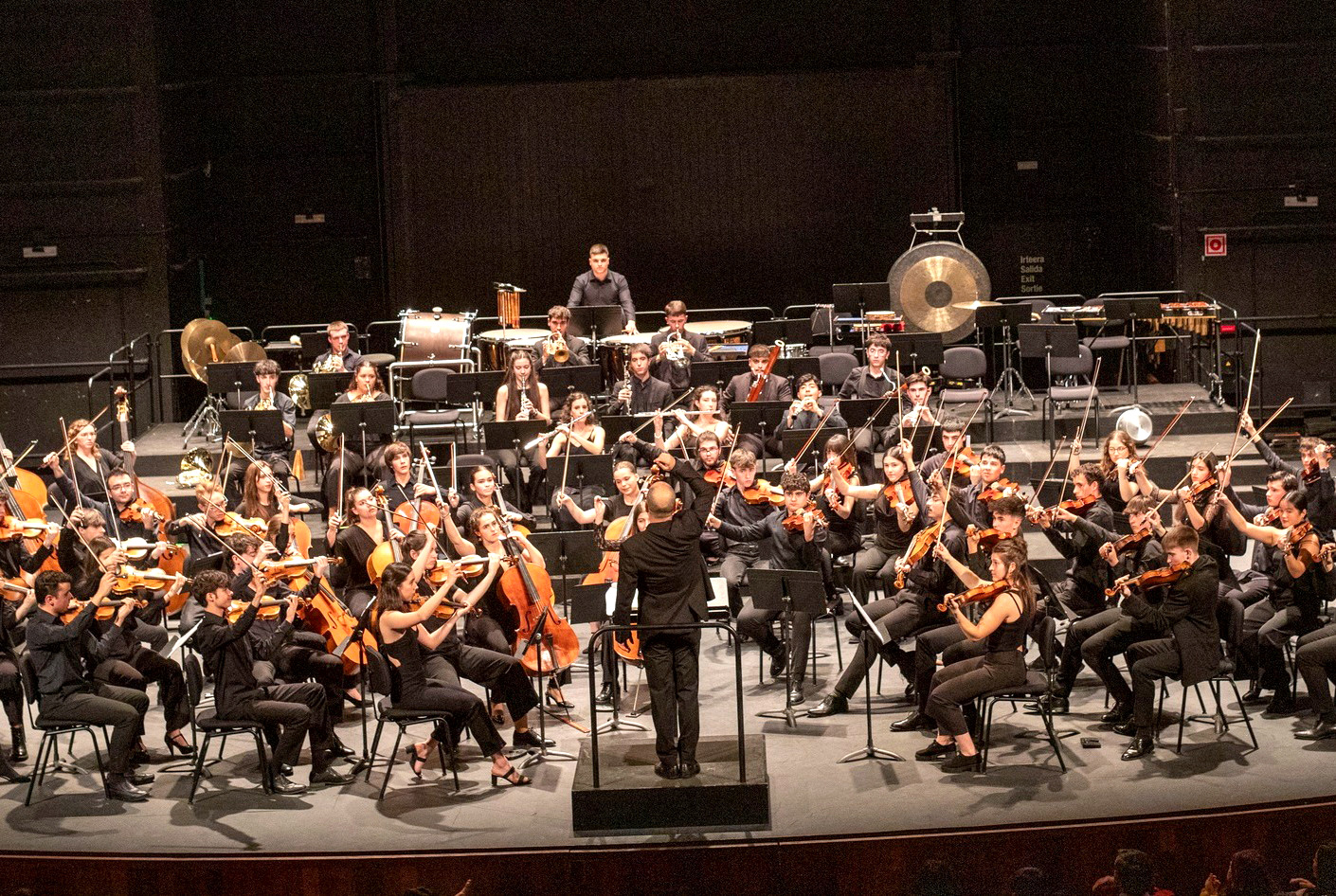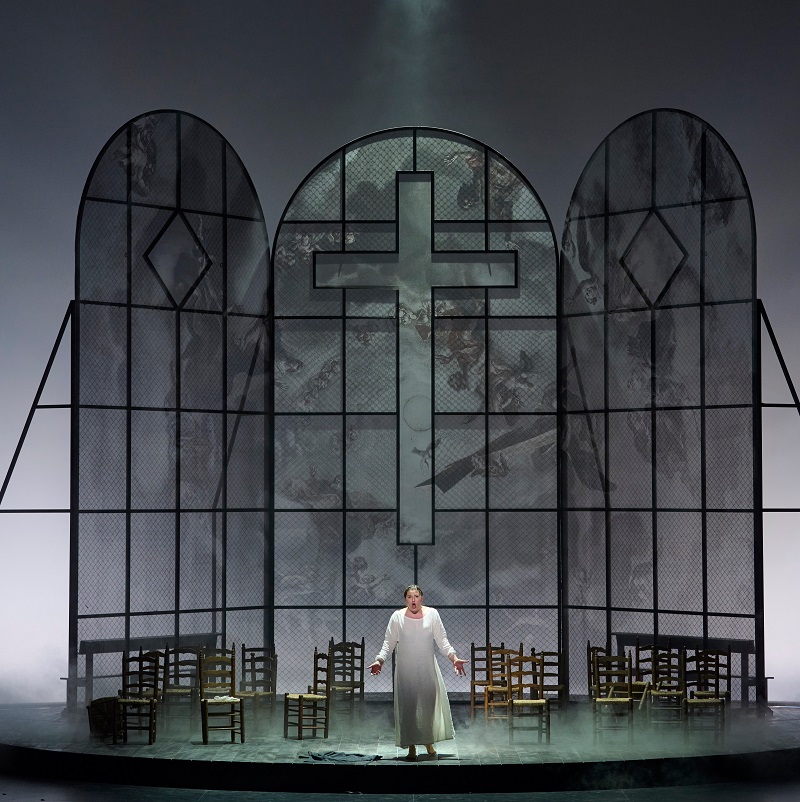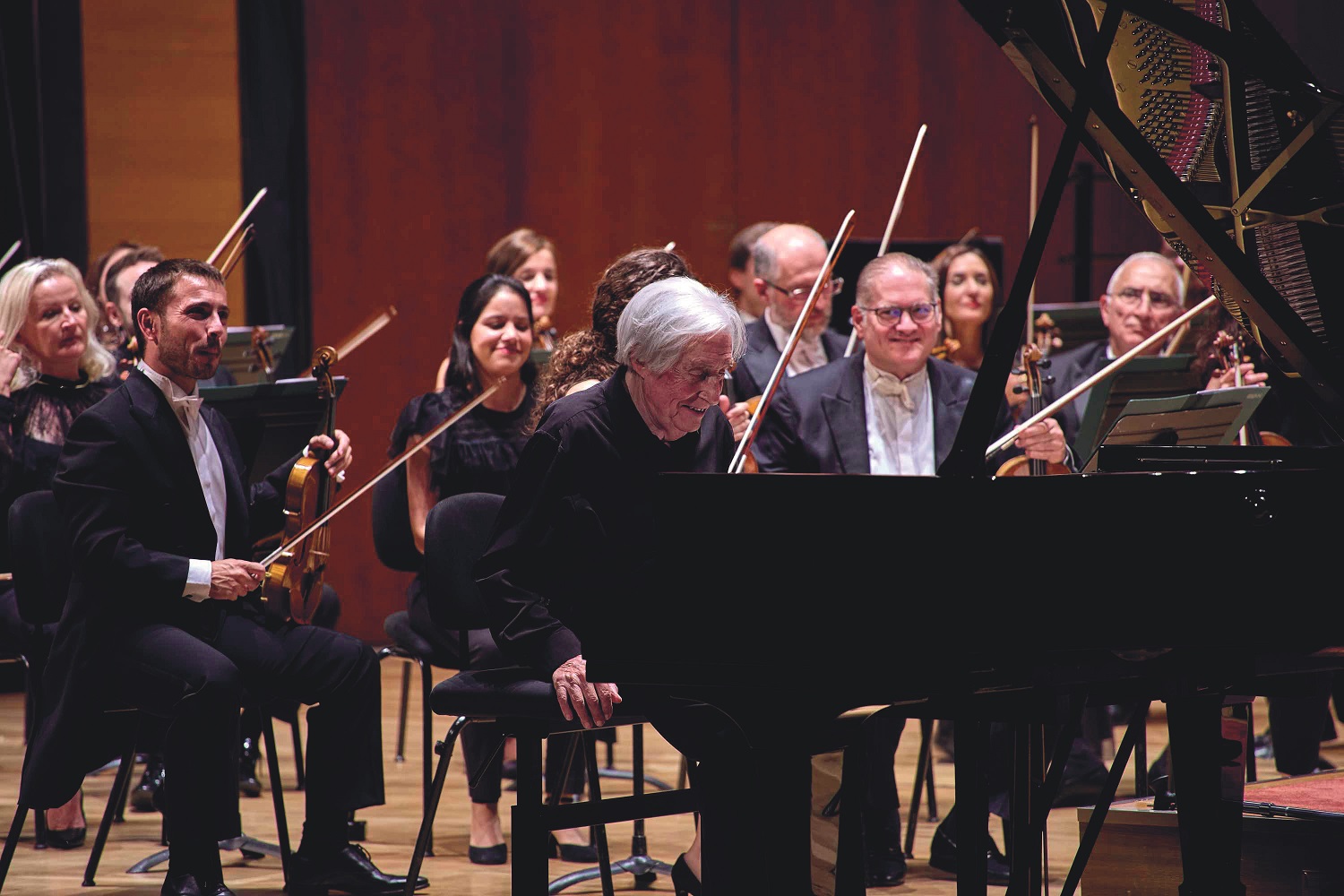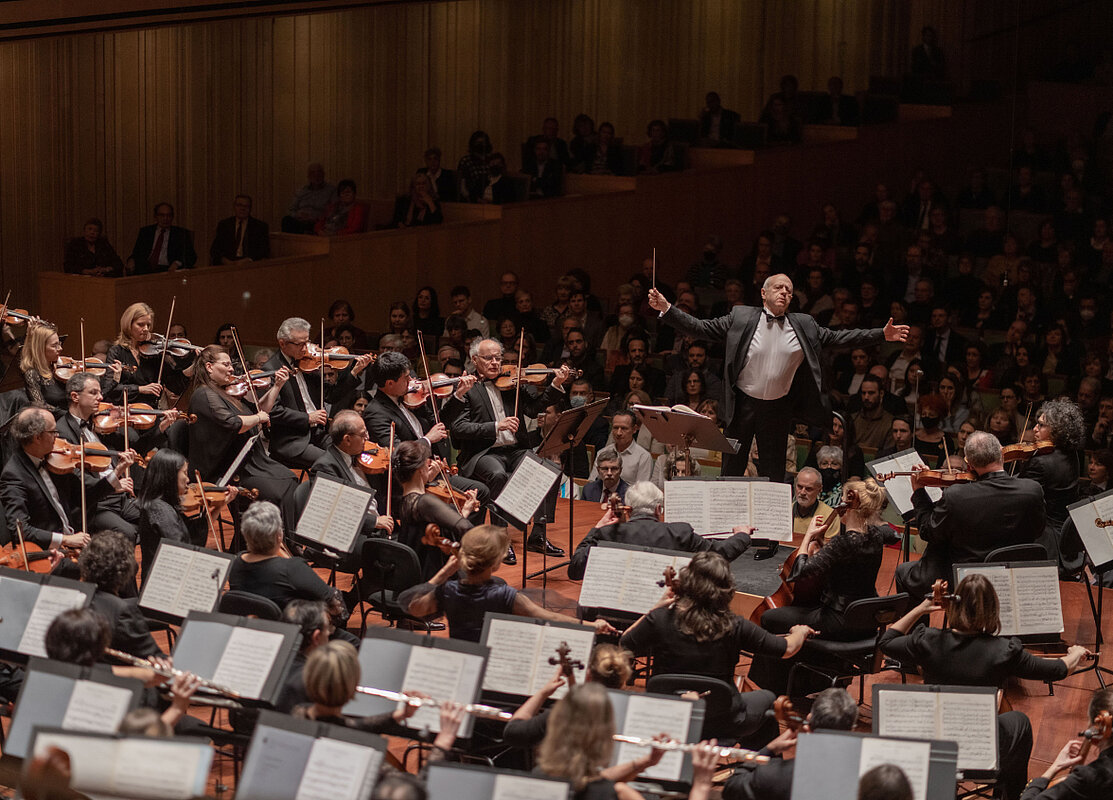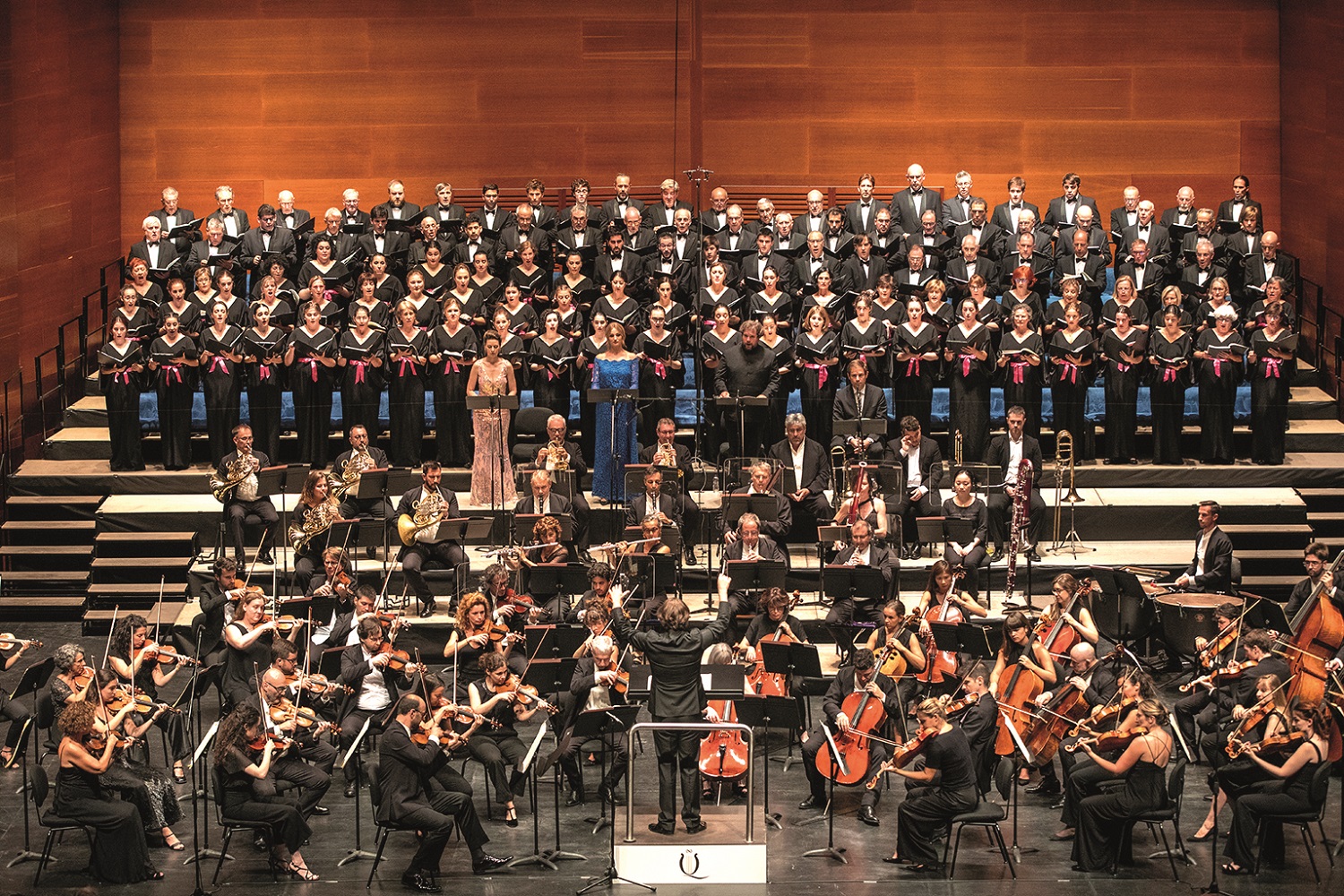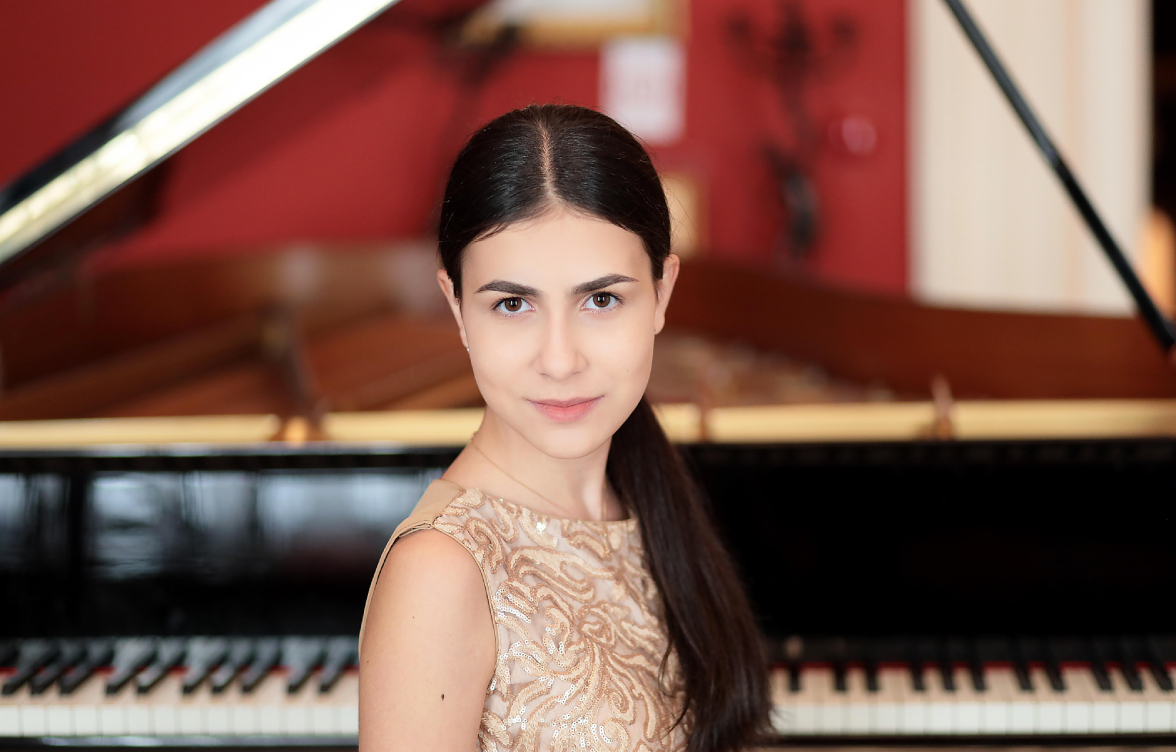A fantasy for children on the axis of classical music
- Haendel, Bach, Mozart, Vivaldi... Why not? Classical music is usually a specific audience, but it can open more doors becoming a theater play or a special show. The Music Hall project of the Basque Orchestra is offering the Pantomima show in the last days of January. Having welcomed 2,000 children from 3 and 6 years of age from Gipuzkoa, during fifteen sessions they have made a wide call to families for the weekend: 27 January in Donostia and 28 in Vitoria-Gasteiz.
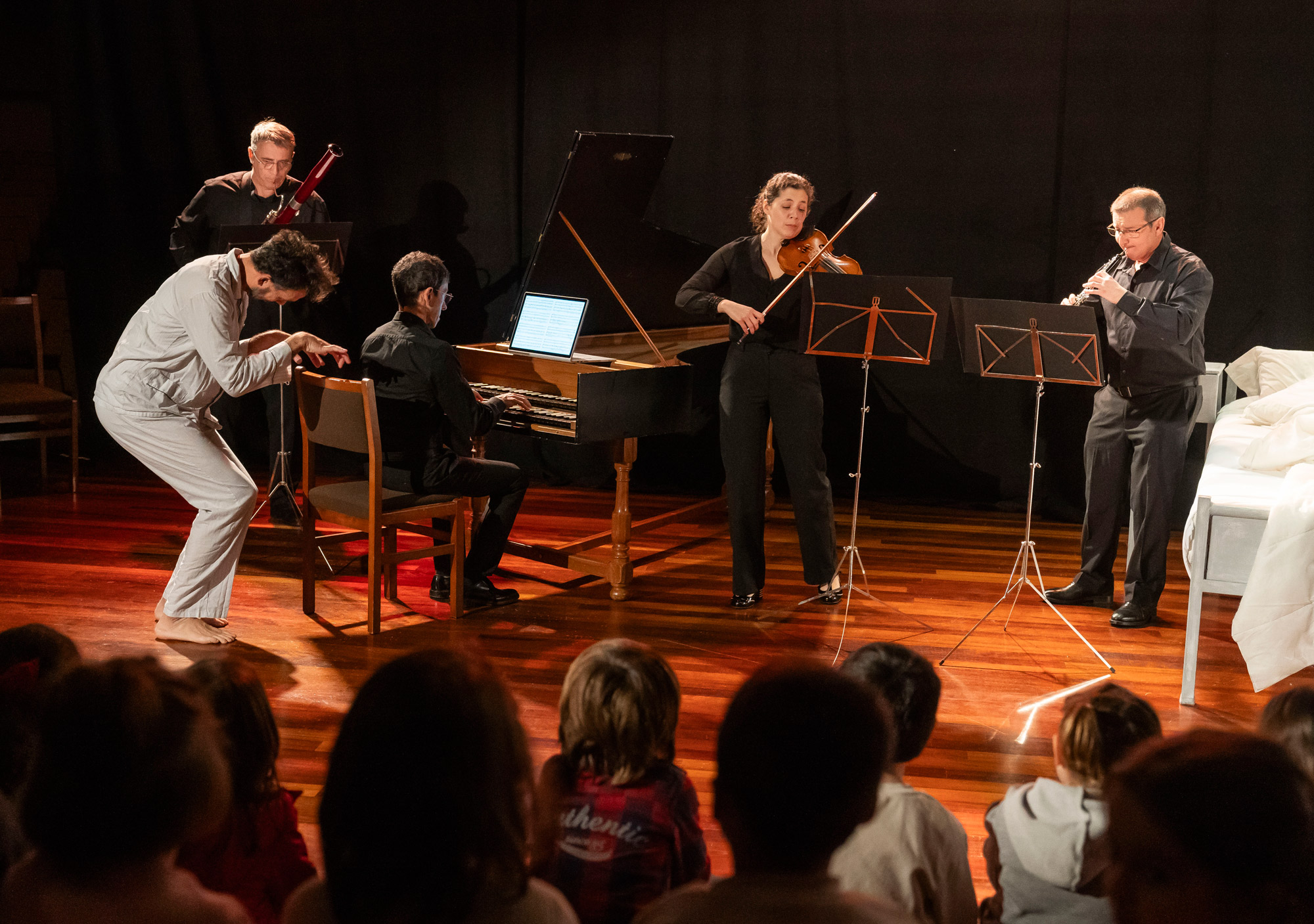
"A person is asleep in the room, so he goes in silence," a worker from the Basque Orchestra instructs dozens of children who have taken off the astrapalancada bus. The teachers have formed small groups and repeated the message. They have all stood in line, honestly. They look oddly at the environment.
Everyone walks into the room without creating great confusion and sits on the boats. He soon realizes that they have revolutionized the regular stage format, well thought out for the show. In an amphitheater where the rows are separated by weights, where the musicians are usually, the spectators are persecuted. And below they set the provisional stage where it would be the row of zeroes from the seats. So instead of going from the bottom to the top, the actors look from the top down, placed in the body 3 and 5 years, at the same time and close.
The man is still asleep in bed. And without it, a small band enters the room. But they awaken the first melodies of Trio sonata de Haendel. Well, at first he thinks he was dreaming and soon he starts trying to hide under his sheet. In doubt, the head starts to come out, sits on the bed with very upright hairs and tries to open his eyes by listening to Bach's Arioso. But it's impossible. Several children laugh.
We don't know who man is. I have often wondered about it and about the position of the scene, but before you start to get too complicated, it is better to step back and, what do I know? Put it in the children's position. To describe that he's in the bedroom, but it's possible, why not, he's in a penitentiary center, and instead of the guard wakes up banging on the edge, at least on this day, the melodies of fine musicians give him good days. Everyone would create their own history and develop their experience, as the writer commented in the subsequent conversation.
What we know is that man, after the awakening process, has joined that miniorchestra as a musician. But he has no idea of music. Take a pickle from the magic box and, thinking he was a violin, start making gestures to hit him. The front row warns him that this was not a violin. The same applies to other instruments. He also acts as an inspector, with the triangle and in the presence of the mythical song The Pink Panther. A child is engaged and the children's arms go up and down from left to right.
The kids have had a morning with lots of interactions and stimuli, but they've enjoyed it, they've seen it in their face. They have had the opportunity to approach classical music and enjoy the show.
Mikel Cañada, screenwriter: "Every child develops his/her own experience"
The show requires a great deal of preparatory work, as you have told me.
Adults, with a good group of musicians, can like almost everything. But it is very difficult to provide proper programming for children aged 3 to 6 years. The show must feel from within to maintain attention. We have worked a lot with actor Gorka [Ganso], we have thought about the selection of songs, their duration, total duration, location...
What role does the Music Classroom project play?
I look at the present. The 200 boys and girls who have come here today do not want to "convince" or "fichar" to be public in the future. Maybe you like it once, or maybe you don't. The goal is that now and every time they come, they can enjoy a live show and be fun.
And you've enjoyed ...
A professor has just told me that a child has been very excited, that he didn't want to go to sleep at the end, that he didn't want the show to end. Everyone lives in their own way; each child develops their own experience. That is the most beautiful thing.
It's also a way to approach classical music, right?
In view of the programming, the list of songs does not appear to be made for children. Haendel, Bach, Mozart, Vivaldi... Our mission is to bring those pieces of composers closer to children. And we could say that at least you've heard. Of course, we don't want you to teach the styles of Baroque music, etc., but at least you've gotten in your ear and enjoyed it with an actor.
I've heard on the radio an educational theme that has made me think. And I wonder. "If we, like Euskadi Orkestra, do not do this, who will? ". Of course, there are more people doing similar shows, but we have a big advantage: We have musicians from the Basque Orchestra.
You have a lot of collaboration with the centers.
We started with them in 2007, with family concerts, aimed at children, from before. Every year the same schools come and we perform various shows for different ages. So by the age of 15, you may not have learned it, but you will have some ears.
In addition, we send a didactic guide to the faculty before going to the session to prepare it in class, with videos, audio, choreographies and proposals. The result is satisfactory: when they come here they know how to identify the harp or the violin.
Opera 'Tristan und Isolde'
Bilbao Symphony Orchestra. Directed by: Assisted by Erik Nielsen.
The Bilbao Opera Choir. Directed by: Assisted by Boris Dujin.
The stage director: To the Allex Eagle.
The soloists: I'm talking about R. Assisted by Nicholls, G. By Hughes Jones, M. The... [+]
Basque Country Herriko Gazte Orkestra. Winter Meeting
Director: Iker Sánchez.
Narrator: Kepa Errasti.
Programme: Works by Britt and Beethoven.
Place: Victoria Eugenia Theatre, Donostia.
Day: 2 January.
-----------------------------------------------
After 27 years, we... [+]
Il Trittico de Puccini
by: Symphony Orchestra of Navarra and Opera Choir of Bilbao.
Scene address: Paco Azorín.
Soloists: The great C. Alvarez, A. Blancas, M. Berti C. Isotton, K. Mattila, A. Ibarra, S. Esparza e I. The hotel.
Where: Euskalduna Palace of Bilbao.
... [+]
When we talk about French composers, we think of Claude Debussy and Ravel. There are those who have fun defending one or the other as the best French composer of all time. Frankly, two geniuses have been absolute, as a result of the circumstances of their time. They were a very... [+]
Opera groups Don Pasquale de
Donizetti: OSE and Bilbao Opera Choir.
Soloists: S. Orfila M.J. Moreno, F. Demuro, D. Del Castillo, P.M. Sánchez.
Stage Director: Emiliano Suárez.
Scenography Alfons Flores.
Place: Euskalduna Palace
Date: 19 October.
... [+]
Concert organized by the Columbus Foundation within the RenHagan Music Festival.
Bilbao Symphony Orchestra.
Address: Ramón Tebar.
Soloist: Joaquín Achúcarro.
Programme: Works by Guridi, Grieg and Brahms.
Place: Euskalduna Palace of Bilbao.
Date: 13 September.
... [+]
Quincena Musical of San Sebastian Orchestra
of the Basque Country: Address: J. Rohrer.
Orfeón Donostiarra: Address: J.A. Sáinz Alfaro.
Soloists: The great C. Reiss V. Karkacheva M. Schmitt, H. Müller-Brachmann.
Programme: In the Solemnis Mass of Beethoven, op. 123.
Place:... [+]
Sheet: Quincena Musical from San Sebastian. Kursaal Auditorium Cycle.
Orchestre Philharmonique de Radio France
Address: Mikko Franck
Soloist: Sol Gabta (cello).
Programme: Works by Debussy, Lalo, Ravel and Stravinsky.
Place: Auditorium Kursaal.Fecha: 30... [+]
Sheet: Quincena Musical from San Sebastian. Kursaal Auditorium Cycle.
Orchestra Filarmónica della Scala de Milan. Address: Riccardo Chailly
Programme: Works by Tchaikovsky and Ravel.
Place: Kursaal auditorium.
Date: 27 August
Perhaps the philharmonic of the Scala of... [+]
Sheet: Quincena Musical from San Sebastian. Cycle Victoria Eugenia.
Alexandra Dovgan (piano).
Programme: Works by Beethoven, Schumann, Rachmaninov and Scriabin.
Place: Victoria Eugenia Theatre. Date: 19 August.
The great composer Luciano Berio said that the virtuosos... [+]
Orchestra Budapest Festival. Address: Ivan Fischer.
Orfeón Donostiarra. Address: José Antonio Sainz Alfaro.
Soloists: Anna Lena Elbert (soprano), Olivia Vermeulen (contralto), Martin Mitterrutzner (tenor), Hanno Müller-Brachmann (low). Place: Audit Kursaal.Fecha: 18... [+]








